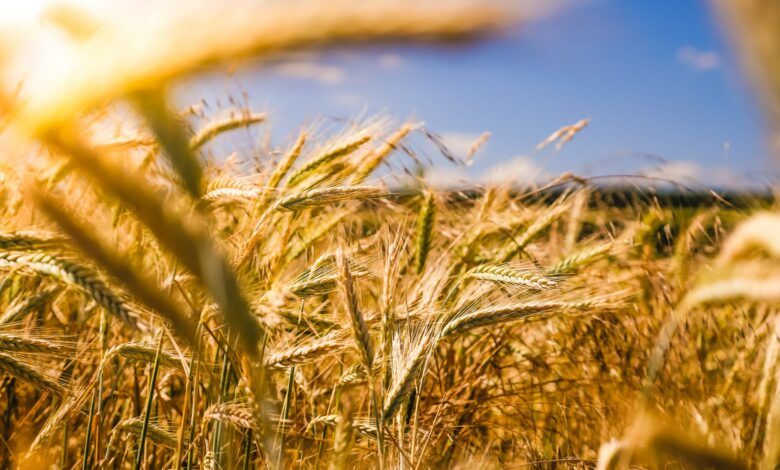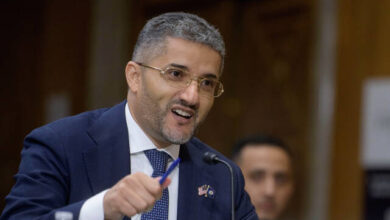
By Simon Zadek
Special to The Times Kuwait
The world economy continues to over-exploit nature, despite being fully dependent on it. It is easy to see why this is unsustainable, especially in light of dangerously escalating climate change. With the biodiversity financing gap estimated to be about $700-900 billion per year, calls are growing ahead of October’s United Nations Biodiversity Conference in Cali, Colombia (COP16) to ‘invest in nature’.
But these well-meaning efforts miss the bigger picture. Investing in nature will not save it so long as the global economy consumes more natural resources than the planet can sustain. It is like trying to shift to a low-carbon economy by using expensive carbon-storage schemes, while simultaneously allowing fossil fuel-intensive industries to emit ever more greenhouse gases.
Instead, what is needed is a regenerative global economy that preserves and restores nature and, in so doing, helps the world achieve crucial climate goals. In short, we must work toward a sustainable and equitable bioeconomy.
The bioeconomy comprises a wide range of sectors and business activities. Most obvious are regenerative forms of agriculture, fishing, forestry, and aquaculture. There are also the many ways that technology is combined with land- and sea-based production, from bio-based plastics to bioenergy and biopharmaceuticals. Lastly, there are the many opportunities to financialize nature’s value through high-integrity and equitable nature-based carbon and biodiversity credits.
The potential is enormous. The World Bioeconomy Forum estimates the current value of the global bioeconomy at $4 trillion, with some projections showing that this could rise to $30 trillion or more by 2050. But the bioeconomy is not automatically sustainable or equitable. It can destroy nature, such as through overfishing and deforestation. Similarly, it can deepen inequalities: land grabs by foreign investors have already been reported, leaving nature-rich countries and local communities in the Global South worse off.
For example, one major question on the biodiversity agenda is how to ensure fair sharing of the profits earned from the digital sequencing of genetic resources. DNA sequence data. called ‘digital sequence information’ (DSI) in policy circles, have revolutionized the life sciences and are fueling innovation in sectors such as food security, medicine, green energy, and biodiversity conservation. Open access to the SARS-CoV-2 viral sequences was partly responsible for the rapid development of diagnostic kits and vaccines.
DSI also has many commercial applications and offers new opportunities for economic development. It is promising that negotiators recently agreed on a draft recommendation for operationalizing the fair and equitable sharing of benefits from DSI, including the creation of a global fund, to be considered at COP16.
Brazil, in its current role as G20 president, has taken the lead in advancing an equitable, sustainable bioeconomy. This includes establishing the G20 Initiative on Bioeconomy, which recently defined ten voluntary high-level principles that will help policymakers cultivate a bioeconomy that promotes social inclusion, provides sustainable jobs, and accelerates progress toward climate and nature goals. There are high hopes that Brazil will continue this work during its presidency of the UN Climate Change Conference in 2025, and that South Africa will advance a similar agenda when it assumes the G20 presidency at the end of the year.
Several steps can be taken now to facilitate investment in the bioeconomy. Creating common measurement standards and natural capital accounting could help agencies like UN Trade and Development and the World Trade Organization improve bio-trade arrangements and address subsidy problems. Nature pricing could help drive investment by increasing the economic value of a sustainable bioeconomy. Devising trade and investment rules, addressing data shortfalls, and ensuring systematic analysis are vital for developing a robust bioeconomy. Regional groups such as the European Union and the African Union are well-positioned to begin implementing these changes.
Developing a successful bioeconomy requires an integrated approach, and that starts with enabling policies. Regenerative agriculture, like bioplastics and bioenergy, struggles to compete with carbon-intensive alternatives that often receive significant subsidies. ‘Bio-businesses’ that rely heavily on technology need a supportive ecosystem of business partnerships, research and innovation, regulation, and public financing that is often lacking in low- and middle-income countries.
Such challenges make it harder for Global South countries to advance value-adding sectors that sustainably use their natural assets. Moreover, while several governments are increasingly developing bioeconomy strategies, sovereign-debt crises, and the resulting fiscal pressures, are often a barrier to unlocking domestic public finance or crowding in private investment.
Development finance institutions can and do play an important role in the Global South. In 2024, for example, the International Finance Corporation committed $56 billion to private companies and financial institutions in developing countries. But many of these institutions lack a bioeconomy strategy or focus, even though investing in the equitable and sustainable use, conservation, and regeneration of natural resources can protect biodiversity, ramp up climate action, generate decent jobs, and accelerate the uptake of clean tech. Realizing these opportunities requires more than one investment at a time. Only by coupling national and regional strategies with international cooperation can we build the sustainable, equitable bioeconomy we need.

Simon Zadek
Co-CEO of NatureFinance.
Copyright: Project Syndicate, 2024.
www.project-syndicate.org




























